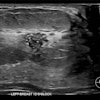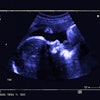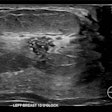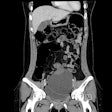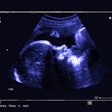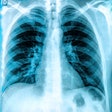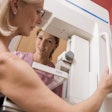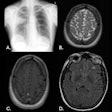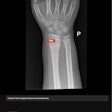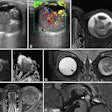
NEW YORK (Reuters Health), Nov 2 - Capsule endoscopy aids in the identification and management of small bowel tumors, according to a report from Australia in the October issue of the American Journal of Gastroenterology.
Capsule endoscopy identifies small bowel tumors in 3% to 9% of patients with obscure gastrointestinal bleeding or suspected small bowel disease, the authors explain, but whether the diagnosis alters management or outcomes has not been studied.
Dr. Adam A. Bailey from Royal Prince Alfred Hospital, Sydney, and colleagues describe the diagnosis and follow-up of 26 patients with 27 small bowel tumors found in the course of 416 capsule endoscopies in three tertiary centers in Australia.
Nine of the 27 tumors identified were benign, the authors report, the most common of which was a hamartoma (four patients).
Of the 17 tumors confirmed to be malignant histologically, the results indicate, small bowel adenocarcinoma (in five patients) was the most common diagnosis.
The patients found to have malignancies had been undergoing investigation for a median 22 months before diagnosis, the researchers note.
Tumor resection was carried out in all but one of 23 patients who underwent surgery, the report indicates, and in 12 patients, surgery was regarded as curative.
None of the patients with benign tumors had a recurrence of symptoms during follow-up ranging from 3 to 51 months, the investigators say. Similarly, none of the patients who had a curative resection developed a recurrence in the ensuing 26 to 51 months.
There were no immediate complications of capsule endoscopy, the report indicates, but the capsule was retained in the small intestine proximal to the tumor in three patients. None developed evidence of small bowel obstruction before endoscopic or surgical removal of the capsule.
"Capsule endoscopy has the potential to achieve earlier diagnosis of small bowel malignancies offering a greater chance of cure," Dr. Bailey and colleagues conclude. "It should be used early in the course of investigation of suspected small bowel disease, avoiding the delay that has led to many patients having advanced disease at diagnosis."
Am J Gastroenterol 2006;101:2237-2243.
Last Updated: 2006-11-02 15:44:30 -0400 (Reuters Health)
Related Reading
Capsule endoscopy 'adequate' for esophageal studies, October 31, 2006
Copyright © 2006 Reuters Limited. All rights reserved. Republication or redistribution of Reuters content, including by framing or similar means, is expressly prohibited without the prior written consent of Reuters. Reuters shall not be liable for any errors or delays in the content, or for any actions taken in reliance thereon. Reuters and the Reuters sphere logo are registered trademarks and trademarks of the Reuters group of companies around the world.
